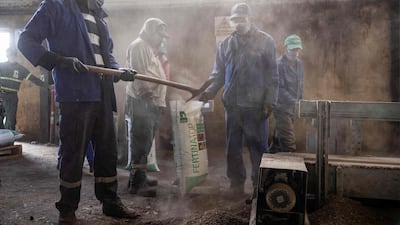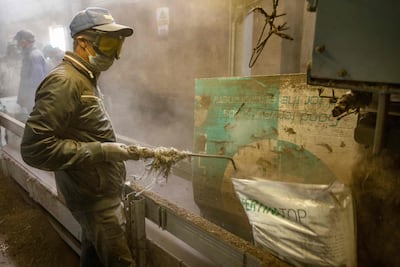
Workers fill bags with fertiliser in the Elephant Vert factory in the 'Agropolis' industrial zone in Morocco's northern city of Meknes. Recycling in Morocco may be in its infancy, but the North African kingdom is making steady progress, helped by a Swiss firm that specialises in processing organic waste.
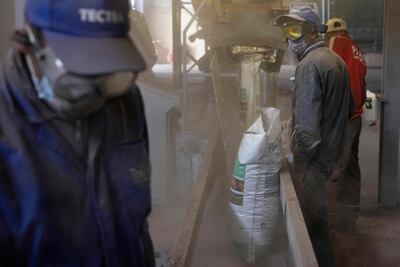
Established in 2012 as Elephant Vert's largest such plant on the African continent, the factory has an annual turnover of 40,000 tonnes of compost and organic fertiliser.
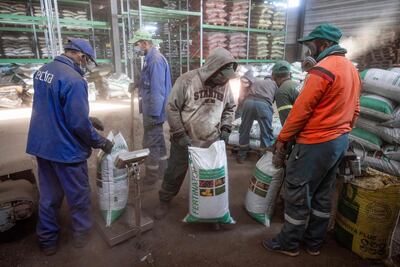
Mountains of sawdust, palettes and fruit tree branches cover a storage platform as trucks trundle past piled high with manure, and excavators aerate piles of compost.
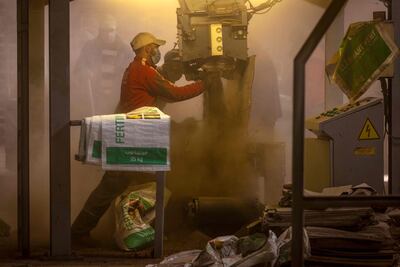
The EV plant also produces fertiliser by adding potash or phosphorus to the compost.

A front loader transports organic waste.
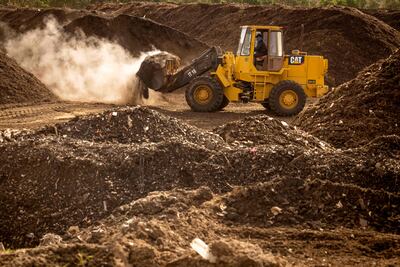
EV's output is sold mainly to organic farms and large enterprises whose soil has lost nutrients following the over-use of chemical fertilisers.
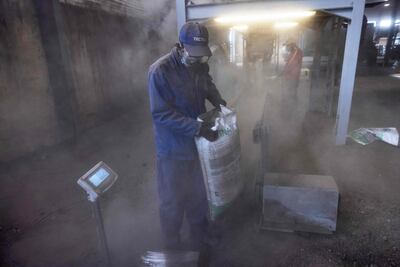
Morocco's official recycling target is 20 per cent of waste by 2022, a date now pushed back to 2030.
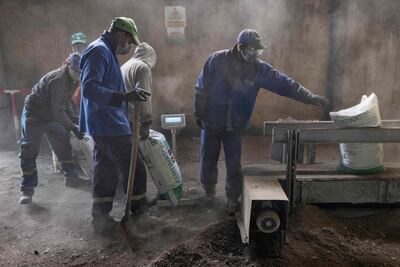
No household organic waste is processed at the factory because it is considered too expensive.
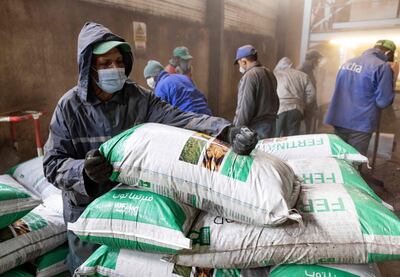
The waste comes from nearby farms and factories that work with wood, or co-operatives producing essential oils.
